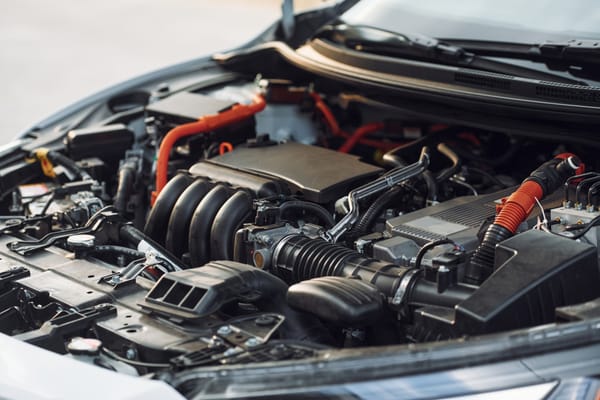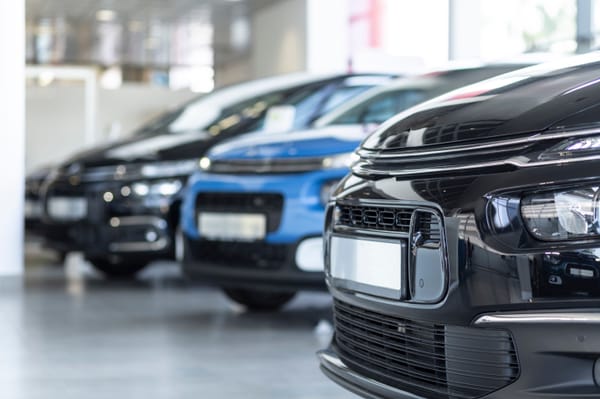Things You Should Know: What They Don’t Tell You About Buying Locally Used Cars

The beauty of buying a locally used car is that they’re readily available. It doesn’t matter where you are. Need a Subaru Forester? You got it! Whether from Peach Cars or elsewhere.
Even your neighbour and mech probably have one of those ‘type yako kabisa’! It can be the right colour, the right price, calling your name and you might be so sold on it, that you’ve already imagined yourself cruising down Waiyaki Way in it.
While this is awesome, there are things nobody tells you about buying a locally used car. Sometimes, that shiny exterior can hide some serious drama. We're talking about the kind of drama that involves auctioneers and lawyers.
Let’s get into the due diligence they don’t tell you about. This is the stuff that separates a sweet deal from a story that ends with, “I wish I knew.”
That Logbook Isn’t Gospel Truth
You see the logbook and think everything is sorted. It has the car's details and a name on it. But that paper can sometimes tell a very creative story.
That logbook is the car’s birth certificate. You, therefore, need to verify its details with the official government registry. Assuming it's 100% accurate without checking is a rookie mistake.
Is the Seller Really the Owner?
You meet the seller, they seem legit and have the logbook in hand. But, wee mzee, gari ni yake?
A common scam involves someone selling a car on behalf of the "owner." Sometimes the real owner has no clue this is happening.
You need to confirm you are dealing with the person named in the logbook.
The National Transport and Safety Authority (NTSA) has a portal for this. The TIMS portal is your first stop. A search using the car’s registration number will show you the current listed owner.
To do an NTSA ownership search:
- You can quickly send the car’s registration number (e.g., KDA 123X) via an SMS to 22846. This will give you the basic details.
- For a more thorough check, use the TIMS portal. The details there must match the logbook perfectly.
- If the names don't match, think twice. That’s a massive red flag waving right in your face.
Matching Numbers: The Car’s Fingerprint
This is where you need to get your hands a little dirty.
- Every car has a unique Vehicle Identification Number (VIN), also called a chassis number.
- It also has a unique engine number.
These numbers are stamped on the car itself. You must check that the numbers on the car match the numbers on the logbook.
Here’s what to look for:
- Chassis Number: Usually found on a metal plate inside the engine bay. It can also be seen at the base of the windscreen or on the driver's side door jamb.
- Engine Number: This is physically stamped onto the engine block. You might need a torch to find it.
If these numbers don't match, you could be looking at a stolen vehicle. Or worse, a "cut-and-shut" car. That's two damaged cars welded together to make one death trap.
The Unseen Passenger: Pending Car Loans
Oh yeah, loans. Remember your father’s cows being auctioned by a bank because he had a loan? The same can happen with cars.
You buy a car with cash. A few months later, an auctioneer shows up to repossess it.
What happened? The previous owner had used the car as collateral for a loan. They sold it to you without clearing the loan...and you know what?
- The bank doesn't care that you paid for it.
- The car is legally their security.
- You could lose your new ride and all the money you paid. Utalilia kwa choo.
Not to worry, below is what you need to do.
How to Sniff Out a Hidden Loan
Don't just take the seller's word for it. They will always say the car is "clean." You need to become your own detective.
- Your best friend here is the Collateral Registry on the eCitizen portal. This government database shows all movable assets used as security for loans.
- A quick search will reveal if your potential car is listed.
- Also, if the car has a jointly registered logbook, reads "John Kamau and ABC Bank," the loan is not cleared. The bank must issue a discharge letter before the ownership can be fully transferred.
Does it matter much? You’re damn right it does. Failing to check for a loan is the most expensive mistake you can make.
- Repossession is a real and painful process.
- You have very little legal ground to stand on.
- Plus, imagine paying Ksh. 1.5 million for a sleek Suzuki Swift. Then losing it because of a Ksh. 500,000 loan you knew nothing about. Inauma.
This single check separates the savvy buyers from the victims. It takes a few minutes but can save you millions and a massive headache. For more on avoiding common traps, check out our guide on common mistakes to avoid when buying a used car.
"Cheap is Expensive": The Hidden Mechanical Gremlins
So the paperwork checks out. Great. But what about the car itself? Magari za Kenya hupitia a lot.
The initial price is just the entry fee. A car with hidden mechanical issues will drain your wallet faster than anything.
The "As Is, Where Is" Trap
You will hear this phrase a lot. It’s a legal way for the seller to say, "Once you pay, the car and all its problems are yours." There are no refunds and no comebacks.
Of course, this is assuming that they don’t tell you about everything that’s wrong with that Honda CRV that you fancy. When this happens:
- It puts all the responsibility on you, the buyer.
- It means you must identify every single issue before you pay.
- Any problem you discover later is 100% your cost to bear.
What you need to know beforehand is that:
That Odometer Can Lie
The dashboard says 60,000 km, but the driver's seat is worn out. The engine sounds tired. What gives?
Mileage rollback is a common scam in the used car market. That odometer reading has been tinkered with.
Look for other signs of wear and tear that don't match the low mileage, including:
- Worn Pedals: Shiny, worn-down brake and accelerator pedals.
- Faded Interior: A heavily worn steering wheel or gear knob.
- Service History Gaps: Ask for the service history. If it's missing or has suspicious gaps, be careful.
Your Secret Weapon: A Inspection Report
A proper, professional inspection can save you a fortune. Because:
Your Cousin is Not a Mechanic
Bringing your cousin who "knows cars" is the wrong move. Kicking the tyres and listening to the engine is not enough. You need an unbiased expert.
Don't rely on a jua kali guy who works for the seller. You need someone with the expertise and the tools to check everything. Someone who will give you the cold, hard truth about the car's condition.
What a Real Inspection Covers
A comprehensive expert inspection should include:
- Computer Diagnostics: An OBD-II scan to check for hidden error codes.
- Accident History Check: Looking for signs of repair, like mismatched paint or poor panel gaps.
- Engine & Transmission Health: Checking for leaks, strange noises, and fluid conditions.
- Suspension & Brakes: A thorough check of all wear-and-tear components.
- Test Drive: A structured test to check the car's real-world performance.
This will save you a lot of trouble.
Now, I know what you’re thinking: all this sounds like too much work! Indeed.
Don’t Panic! There's a Better Way
First of all, you need a quality car without kuoshwa. So, it’s only right to do things safely.
You just need a process that guarantees peace of mind. A process that ensures the car you buy is free of any hidden stories.
That’s where we come in.
At Peach Cars, we handle all these headaches for you. Every single car on our platform goes through rigorous due diligence before it's even listed. We've already done the complicated checks for you.
We verify the ownership. We confirm there are no pending loans. We ensure all numbers match and the car's history is clean. On top of that, every car comes with a comprehensive 288-point inspection report.
Don’t take our word for it? No biggie. Call us on 0709 726 900 or visit Peach Cars today and see and learn for yourself what a seamless car buying experience should look like. We’ll be happy to welcome you!




